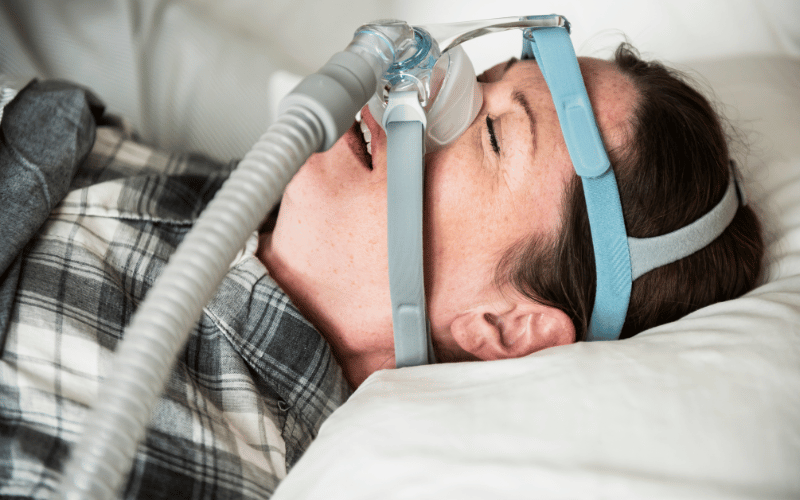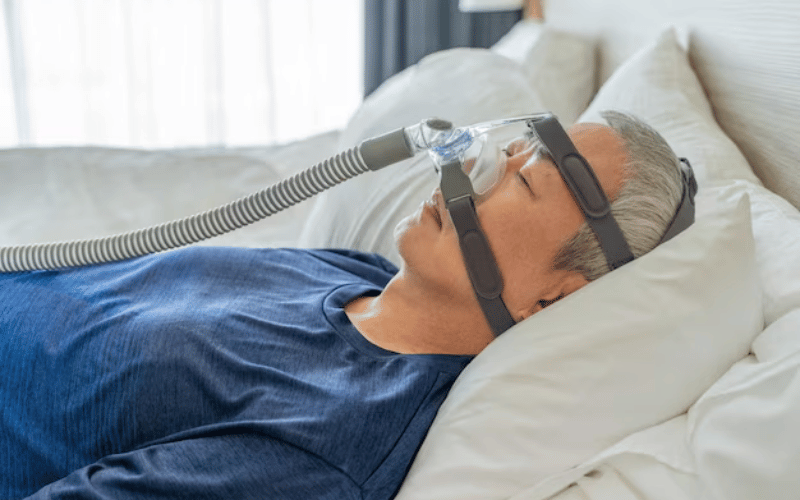


Sleep apnea is a condition characterized by pauses in breathing during sleep and can significantly impact various aspects of health, including cardiovascular health, cognitive function, and overall quality of life. Research indicates that untreated sleep apnea is associated with a shorter life expectancy. By addressing sleep apnea through proper diagnosis and treatment, individuals can mitigate its adverse effects, potentially extending their lifespan and improving their overall well-being. Therefore, recognizing the importance of managing sleep apnea is essential for promoting a healthier and longer life. In this article, we will understand how sleep apnea affects the life expectancy of humans.
Does Sleep Apnea Affects Life Expectancy?
Yes, sleep apnea affects our life expectancy. Research suggests that untreated sleep apnea is linked to various health complications, including hypertension, heart disease, stroke, and diabetes. If left unchecked, these conditions can significantly reduce life expectancy. Additionally, the interrupted sleep patterns associated with sleep apnea can lead to daytime fatigue and impaired cognitive function, potentially increasing the risk of accidents and other health issues. Therefore, managing sleep apnea through proper diagnosis and treatment is crucial for improving overall health and potentially extending life expectancy.
Factors Affecting Life Expectancy with Sleep Apnea
1. Severity of Sleep Apnea: The severity of sleep apnea, determined by factors such as the frequency of breathing interruptions (apneas and hypopneas) per hour during sleep (apnea-hypopnea index), plays a significant role in life expectancy. Severe cases are associated with higher risks of cardiovascular complications and other health issues.
2. Comorbidities: Other health conditions, such as obesity, hypertension, diabetes, and cardiovascular diseases, can exacerbate the effects of sleep apnea and contribute to a shorter life expectancy. These comorbidities often interact with sleep apnea, leading to a higher risk of complications.
3. Treatment Adherence: Adherence to treatment, such as continuous positive airway pressure (CPAP) therapy, oral appliances, or lifestyle changes, can influence life expectancy. Consistent use of prescribed treatments can help alleviate sleep apnea symptoms and reduce the risk of associated health complications.
4. Lifestyle Factors: Lifestyle choices like smoking, excessive alcohol consumption, sedentary behavior, and poor diet can worsen sleep apnea and its consequences. Addressing these factors through lifestyle modifications can positively impact life expectancy in individuals with sleep apnea.
5. Genetic Predisposition: Genetic factors may contribute to the development and severity of sleep apnea. Individuals with a family history of sleep apnea or related health conditions may have a higher predisposition to the disorder, which can affect their life expectancy. Understanding genetic influences can guide personalized treatment approaches.
Treatment Options and Improving Life Expectancy
1. Continuous Positive Airway Pressure (CPAP) Therapy: CPAP therapy is the most common and effective treatment for obstructive sleep apnea. Regular use of a CPAP machine during sleep helps keep the airway open, preventing breathing interruptions and improving oxygen levels. Adhering to CPAP therapy can significantly reduce the risk of cardiovascular complications and improve overall health, potentially extending life expectancy.
2. Oral Appliances: Oral appliances, such as mandibular advancement devices, can help treat mild to moderate obstructive sleep apnea by repositioning the jaw to keep the airway open during sleep. Adherence to oral appliance therapy can improve sleep quality, reduce symptoms, and decrease the risk of associated health problems, thus contributing to a longer life expectancy.
3. Lifestyle Modifications: Lifestyle changes, including weight loss, regular exercise, smoking cessation, and limiting alcohol consumption, can complement other treatments for sleep apnea. These modifications can improve overall health, reduce the severity of sleep apnea, and lower the risk of cardiovascular diseases and other complications, ultimately enhancing life expectancy.
4. Surgery: In some cases, surgical procedures may be recommended to address anatomical abnormalities causing obstructive sleep apnea, such as enlarged tonsils, deviated septum, or excess tissue in the throat. Surgery can help improve airflow and reduce breathing disturbances during sleep, leading to better sleep quality and potentially extending life expectancy.
5. Multidisciplinary Approach: A comprehensive treatment approach involving collaboration between sleep specialists, pulmonologists, cardiologists, dentists, and other healthcare providers can optimize management strategies for sleep apnea. Tailoring treatment plans to individual needs and addressing underlying health conditions can improve treatment outcomes and promote a longer, healthier life for individuals with sleep apnea.
Wrap Up!
In conclusion, while sleep apnea poses risks to health and life expectancy, effective management strategies exist to mitigate its impact. With treatments like CPAP therapy, oral appliances, lifestyle modifications, and surgical interventions available, individuals can achieve better sleep quality and potentially regain a normal life expectancy. If you suspect sleep apnea, don’t hesitate to seek diagnosis and treatment from experts like Beverly Hills Oral and Facial Surgeon. Take charge of your health today and reclaim restful nights and vibrant days. Schedule your consultation now for a brighter, healthier future!




